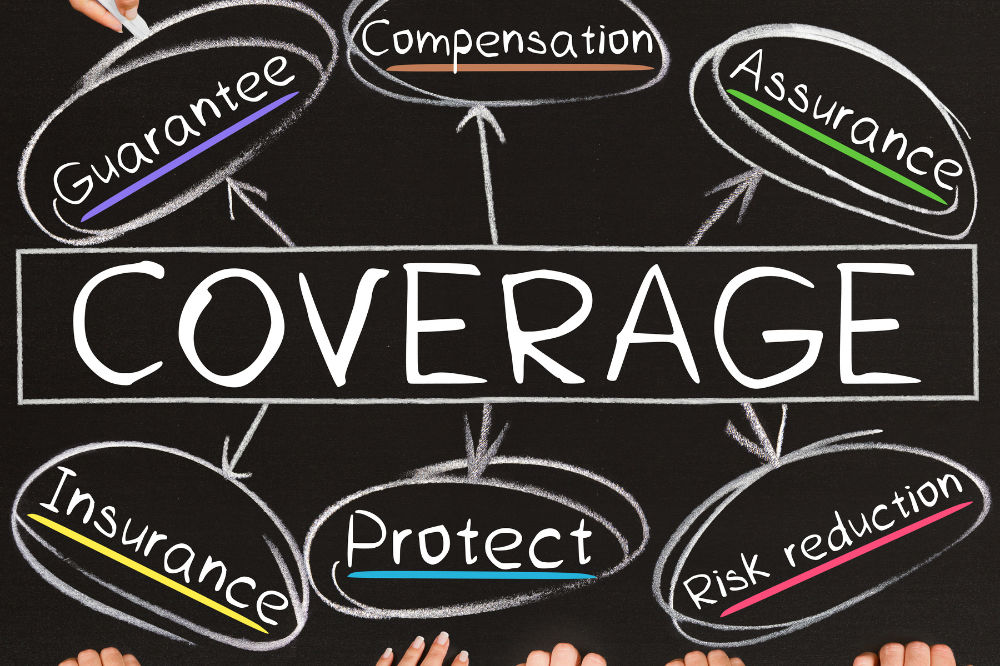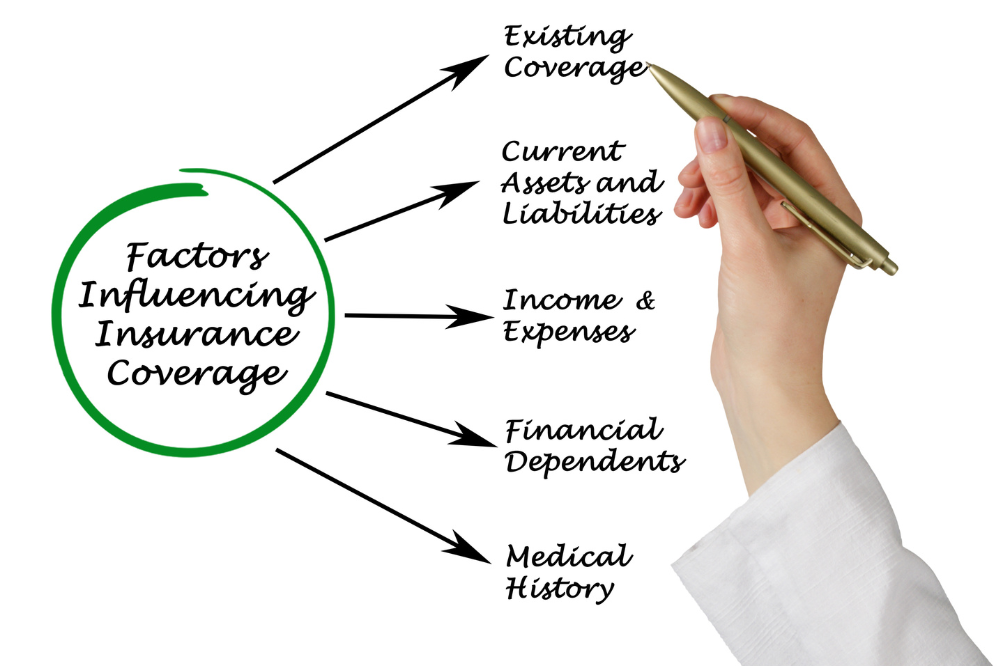Introduction to renters insurance and its liability coverage

Most renters insurance policies have coverage limits, which means that they will only pay up to a certain amount for damages or losses. However, you can typically purchase additional coverage if you need it. In some cases, renters insurance can also cover your belongings if they are damaged while you are away from home, such as if they are in storage or in a car. Some renters insurance policies will also cover your belongings if they are damaged by a natural disaster, such as a fire or flood.
If you have renters insurance, it is important to keep track of your personal property so that you know what is covered and what is not. You should also keep receipts and photos of your belongings so that you can easily file a claim if necessary. Many renters choose to purchase renters insurance because it is relatively inexpensive and it gives them peace of mind knowing that their personal property is protected. If you don’t have auto insurance, your renters policy may also cover your vehicle while it’s parked at your home. Check with your insurer to see if this coverage is included in your policy or if you need to purchase it separately.
Why do you need renters insurance?
Many renters mistakenly believe that their landlord’s insurance will cover any damages that occur to their personal property or to the apartment itself. However, this is not the case. Landlord insurance typically only covers the building itself, and not the belongings of individual renters. As a result, it’s important for renters to purchase their own renters insurance policy.
Renters insurance provides coverage for personal property in the event of damage or theft, and it also includes liability insurance in case someone is injured while on the premises. Most importantly, renters insurance is relatively affordable, especially when compared to the cost of replacing damaged or stolen items. For all these reasons, renters insurance is an essential piece of protection for anyone who doesn’t own their home.
Types of coverage you can get in renters insurance?
There are two main types of coverage you can get with renters insurance: personal property coverage and medical payments coverage. Personal property coverage protects your belongings in case they are lost, stolen, or damaged. This could include things like furniture, electronics, clothing, and more. Medical payments coverage, on the other hand, helps to pay for any medical expenses you incur as a result of an accident that takes place in your rental unit. This could include things like doctor’s bills, hospital stays, and prescription medications. By understanding these two types of coverage, you can be sure to find an insurance policy that meets your needs.
How much coverage amount do you get in renters insurance?
How much coverage you get in renters insurance is determined by the policy you purchase. A standard policy will usually cover your personal belongings for up to $10,000. However, you can increase coverage amount by purchasing additional coverage or a rider. If you have valuable items such as jewelry or art, you may want to consider getting more coverage. You can also purchase liability coverage, which will protect you if someone is injured on your property. Ultimately, the amount of coverage you get in renters insurance will depend on your needs and budget.
How to find the coverage you need in renters insurance?
Renters insurance depends on the state you live in. renters insurance is a type of insurance that provides protection for your personal property and liability in the event that something happens to either while you’re renting a home or apartment. In most states, renters insurance is not required by law, but your landlord may require it as a condition of your lease. Even if it’s not required, though, renters insurance is a good idea. It can protect you from having to pay out of pocket for repairs or replacement of your belongings if they’re damaged or destroyed in a fire, burglary, or other covered event. Additionally, renters insurance can provide liability coverage in the event that someone is injured while on your property and decides to sue you. While the amount of coverage you need will vary depending on your individual circumstances.
Personal property coverage and medical payments coverage are two main types of coverage that are often included in renters insurance policies. Personal property coverage helps to pay to repair or replace your belongings if they’re damaged or destroyed in a covered event, while medical payments coverage can help to pay for the medical expenses of someone who is injured while on your property. Ultimately, the best way to determine how much coverage you need is to speak with an insurance agent about your specific situation.
The cost of renters insurance
The cost of renters insurance can vary depending on a number of factors, including the size of your home, the value of your belongings, and the amount of coverage you need. However, renters insurance rates are typically much cheaper than homeowners insurance rates. This is because renters insurance only covers the contents of your home, not the actual structure. As a result, renters insurance policies are much less expensive to insure. The average renters insurance policy costs about $15 per month, or $180 per year. However, the actual cost of your policy will depend on the factors mentioned above.
10 major renters insurance policies
1. Fire and Smoke- This is one of the most common types of renters insurance and covers damage caused by fires or smoke.
2. Water Damage- This type of insurance covers damage caused by water, such as leaks, floods, or sewage backups.
3. Windstorm and Hail- This type of insurance covers damage caused by high winds or hail.
4. Burglary and Theft- This type of insurance covers damage caused by burglaries or thefts.
5. Vandalism and Malicious Mischief- This type of insurance covers damage caused by vandalism or malicious mischief.
6. Personal Liability- This type of insurance protects you from liability if you are sued for damages caused by your negligence.
7. Medical Payments- This type of insurance pays for medical expenses incurred by someone injured on your property.
8. Loss of Use- This type of insurance pays for additional living expenses if you are unable to live in your home due to damage caused by a covered event.
9. Equipment Breakdown- This type of insurance covers the cost of repairing or replacing damaged equipment, such as appliances.
10. Travel Insurance- This type of insurance covers the cost of travel expenses if you are unable to reach your destination due to a covered event.
What limits should you set for your policy?
In any debate, it is important to define the terms of the debate. When it comes to setting limits on your policy, there are a few key considerations that you will need to take into account.
First, you will need to decide what your goals are. What are you hoping to achieve with this policy? Once you have defined your goals, you will need to consider who will be impacted by the policy. Will it only affect those within your organization, or will it have a broader reach? Finally, you will need to think about the cost of implementing and enforcing the policy.
By taking all of these factors into account, you can develop a well-rounded policy that meets your needs and the needs of those you serve.
Risk factors renters insurance has

When choosing a renters insurance policy, it is important to consider the value of your personal belongings as well as the amount of coverage you need. Additionally, it is important to be aware of common risk factors that may not be covered by your policy, such as flood damage or theft. By taking the time to understand your coverage options, you can ensure that you are protected in the event of an unexpected loss.
Here are the major risk factors you can face:
1. Location-based risks: Renters’ insurance rates can be affected by the location of your rental property, as some areas may be more prone to crime or natural disasters than others.
2. The value of your belongings: How much coverage you need will depend on the value of your personal belongings. If you have expensive items, you may need to purchase additional coverage.
3. The type of rental property: The type of rental property you have can also affect your rates. For example, apartments and condos tend to be less expensive to insure than single-family homes.
4. The length of your lease: The length of your lease can also impact your renters insurance rates. For example, short-term leases may be more expensive to insure than long-term leases.
5. Your credit history: Your credit history may be a factor in determining your renters insurance rates, as insurers use this information to help assess the risk of insuring you.
6. Your claims history: If you have a history of filing insurance claims, you may be seen as a higher risk and may pay more for coverage.
7. Your deductible: The amount of your deductible can also affect your rates. A higher deductible means you’ll pay more out of pocket if you have a claim, but it can also lead to lower premiums.
8. The coverage you select: The type and amount of coverage you select can also affect your rates. For example, choosing a higher deductible or opting for less coverage may lead to lower premiums.
9. The current insurer you choose: The company you choose to insure with can also impact your rates. Some insurers may offer discounts or have different rates for different types of renters.
10. Your payment history: How you pay your premiums can also affect your rates. If you have a history of late or missed payments, you may be seen as a higher risk and may pay more for coverage.
What limits should you set for your renters insurance policy?
When it comes to setting limits for your renters insurance policy, there are a few factors to consider.
First, you’ll need to determine the value of your possessions. To do this, you can create an inventory of your belongings and estimate their replacement cost. It’s also important to consider the amount of coverage you need. For example, if you live in an area with a high crime rate, you may want to purchase a policy with higher limits.
You should also take into account any deductibles you’re comfortable with. Remember, your goal is to find a policy that provides adequate protection without breaking the bank. By taking the time to shop around and compare rates, you can find the perfect renter’s insurance policy for your needs.
How to get discounts on your renters insurance

Many people assume that renters insurance is a luxury. However, renters insurance is actually quite affordable, and there are several ways to get discounts on your policy.
One way to get a discount is to bundle your renters insurance with your auto insurance. Many insurance companies offer discounts for customers who purchase multiple policies from them.
Another way to get a discount is to ask about loyalty programs. Some insurers offer loyalty discounts for customers who stay with the company for a certain period of time. Finally, you can also get a discount by paying your premium in full.
Many companies offer a discount for customers who pay their entire premium upfront rather than making monthly payments. By taking advantage of these discounts, you can keep your renters insurance rates low without sacrificing coverage.
5 things to remember when shopping for coverage renters insurance
1. Make sure you are covered for the right amount. You will want to make sure that your policy covers the full value of your belongings in the event that they are lost, damaged, or stolen.
2. Choose a deductible that you can afford. A higher deductible will result in a lower premium, but make sure you can still afford to pay it if you need to make a claim.
3. Get quotes from multiple insurers. Renters insurance rates can vary significantly from one company to another, so it’s important to shop around and compare rates before buying a policy.
4. Read the fine print. Once you’ve chosen a policy, be sure to read the fine print carefully to understand exactly what is and isn’t covered.
5. Review your policy regularly. As your life changes, your renters insurance coverage should change with it. Be sure to review your policy periodically to make sure it still meets your needs.
There you have it! Five things to remember when shopping for renters insurance. By following these tips, you can be sure that you’re getting the coverage you need at a price you can afford.
What is the deductible amount in renters insurance?
Renters insurance is a type of insurance that helps to protect tenants from loss or damage to their personal belongings. It can also provide liability coverage in case someone is injured while on the property. A deductible is the amount that the policyholder must pay out of pocket before the insurance company will start to pay for any covered damages of valuable possessions. The deductible amount will vary depending on the policy, but it is typically a fairly low amount, such as $500 or $1000. Because of this, renters insurance is often very affordable, even for people with limited budgets. As a result, it is an important type of coverage for anyone who rents their home.
Which factors affect the renters' insurance coverage?
There are a few things that affect how much coverage you’ll get with renters insurance.
The first is the value of your belongings. If you have a lot of expensive items, you’ll need more coverage to protect them. The second is the type of policy you choose. Some policies cover more than others, so be sure to read the fine print before you choose one. The last thing that can affect your coverage is where you live. Some areas are riskier than others, so you may need to get more coverage if you live in a high-risk area.
What is comprehension coverage in renters insurance?
Comprehension coverage in renters insurance is a type of coverage that helps to protect you from damage to your personal possessions that are caused by a covered event. It typically covers events such as fire, smoke, flooding, and theft. It is important to note that comprehension coverage does not cover damage that is caused by your own negligence or that is due to normal wear and tear. In order to determine whether or not you have comprehension coverage in your renters insurance policy, you will need to review your policy documents. If you have any questions about your coverage, you should contact your insurance agent or company.
Personal property coverage in renters insurance

As a renter, it is important to have insurance to protect your belongings in case of damage or theft. Many renters mistakenly believe that their landlord’s insurance will cover their personal property, but this is not the case. Your landlord’s insurance policy only covers the building itself, not the contents. That’s why you need renters insurance.
Renters insurance policies typically provide coverage for your personal property up to a certain dollar amount. Higher limits are available for an additional premium. In addition to personal property coverage, renters insurance also typically provides liability coverage in case you are sued for damages caused by your negligence.
For example, if a visitor trips and falls in your apartment, you could be held liable for their medical expenses. Renters insurance can help protect you from financial ruin in such a scenario. So if you’re renting an apartment or home, be sure to purchase a renters insurance policy to safeguard your belongings and your finances.
Wrapping Up
Now that you understand a little more about renters insurance, it’s important to know why you need it. Renters insurance provides liability coverage in case someone is injured on your property or something belonging to you is damaged and the damages are not covered by your landlord. You can also get additional coverage for things like personal property, medical expenses, and even loss of use if you have to vacate your home because of an incident.
So, how much coverage do you need? That answer will depend on a few factors including where you live, what type of rental agreement you have, and your own personal belongings. Our team can help connect you with the right provider and policy that fits your needs. Be sure to shop around and compare rates- renters insurance is affordable and can provide peace of mind. We hope this article has helped educate you on renters insurance and its many benefits! For more information be sure to check out our other blog posts on the topic.











